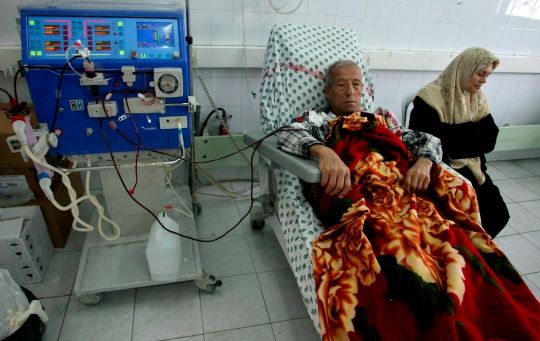Germany has a peculiar relationship with Israel. Its history with the Jewish population of Europe has pushed it to unconditionally support the Middle Eastern country, despite the evident human rights violations committed by the occupation forces and an increasingly xenophobic government. In that context, critics of the state of Israel are certainly not welcomed.
RELATED:
BDS Isn't Anti-Semitic: Roger Waters Defends Palestinian Movement at Berlin Concert
One of Israel's greatest victories is the general idea that any criticism towards its policies amounts to anti-Semitism. Even though this is crearly not true, German authorities and public institutions still struggle to understand the difference.
And it's this elegantly masked form of censorship that barred the German composer Wieland Hoban from this year's Donaueschingen music festival.
Hoban's 'Hora’ot Pticha Be’esh (Rules of Engagement I)' is an instrumental piece featuring sampled declarations from an Israeli sergeant who took part in Operation Cast Lean in Gaza between 2008 and 2009. Speaking in Hebrew, the sergeant can be heard saying "the rules of engagement were to shoot," looped throughout the composition.
He then composed 'Al Shifa (Rules of Engagement II), named after a hospital in Gaza, which has been the center of Israeli criticism, accused of being used by Hamas for military operations.
But when Hoban moved to premier the next part of his trilogy, the artistic director of the Donaueschingen music festival, Björn Gottstein, denied his request in a private email dated July 16.
Gottstein said he rejected Hoban's piece because "he was already represented in the 2016 edition" and the artistic director prefers to give a chance to other composers, but that was only part of the reason.
The original email has not been published, by request of Gottstein himself, but Hoban paraphrased in an open letter that has received widespread support from artists and intellectuals.
"He told me in the clearest possible terms that although he gave composers a free hand in their use of political content, he would not tolerate any criticism of Israel at the festival and would prevent the appearance of any piece on the programme that contained such criticism," Hobart writes.

The letter has earned widespread support from around the world, forcing Gottstein to publish another statement on August 16, further explaining his reasons.
“Due to its history, Germany has a special responsibility to Israel," Gottstein said. "Due to this history, overt anti-Semitism is seen as abhorrent throughout most of society.
"For this reason, anti-Semitism is often communicated through criticism of Israel. Israel-related anti-Semitism is currently the most common form of anti-Semitism – even in Germany."
Gottstein said it would be "a fatal mistake" for Donaueschingen to present such a piece, and blamed Hoban for his support of the cultural boycott of Israel and for denouncing Israel's apartheid policies.
"These positions are unacceptable for me and Sudwestrundfunk [the public radio broadcaster that presents the festival] . I do not want to contribute to anti-Semitism in Germany in any way," Gottstein said.
Hoban said he regretted that Gottstein, as an employee of a public broadcaster, was censoring public debate: "Gottstein's words constitute an absolute ban that applies to any and all composers who might be interested in addressing this subject.
"We believe that art must be a forum for the free exchange of ideas and reject every form of censorship."
As well as many of Hoban's colleagues, the open letter is also signed by Noam Chomsky, Norman Finkelstein, Iris Hefets, Ilan Pappe, Sara Roy, Avi Shlaim, Slavoj Žižek and Roger Waters.
In July, the renowned pianist and composer Daniel Barenboim published an opinion piece in The Guardian regarding Israel's racist law that confirms that only Jewish people have the right to self-determination in the Zionist state.
"I don't think the Jewish people lived for 20 centuries, mostly through persecution and enduring endless cruelties, in order to become the oppressors, inflicting cruelty on others," writes Barenboim. "This new law does exactly that. Therefore, I am ashamed of being an Israeli today."